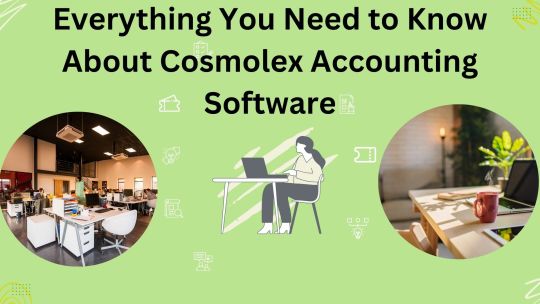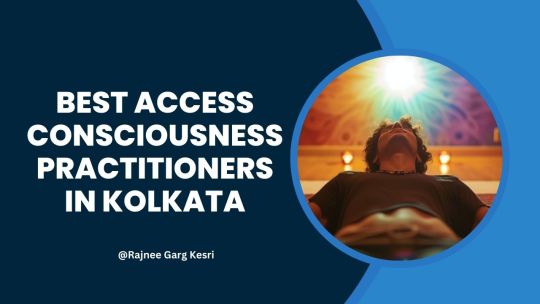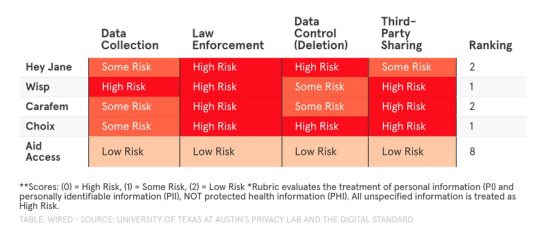#access-bars-practitioner
Explore tagged Tumblr posts
Text
Experience Access Bars Therapy in Kolkata for ultimate stress relief, mental clarity, and emotional healing. Book your session today!
0 notes
Note
does fg have prosthetics?

(This one was largely written by @lsdoiphin.)
Yes, but they’re nothing special for the time period. So, hooks and pegs for the lower class, with more aesthetically appealing, comfortable, and complex prostheses for those who can afford it.
If you were wondering about the prospect of meur-powered mecha arms, that’s something that would probably be feasible… in the far future. The field of prosthetics is slow to improve, and there are a few reasons the Tri-Kingdom isn’t actively pursuing refinement:
1. Vestur has been at (relative) peace for a long time.
In the real world, big leaps in the field of prosthetics tend to coincide with postwar periods. This only accelerated in the post-industrial age, when war became grisly enough to yield tens of thousands of amputees from a single conflict. Before that, amputees were sporadic enough to be considered unlucky individuals rather than a specific demographic to be accommodated.
In the setting, war on home soil is out of living memory; the Vesturian peninsula has enjoyed peace for more than a hundred years. When the Tri-Kingdom goes to war, it goes to war off-peninsula on its own terms. A foreign enemy’s most gruesome weapons couldn’t hope to match a red conductor’s fire or a green conductor’s brambles. Simply put, they aren’t getting injured as frequently or grievously as their opponents.
2. The work of white practitioners decrease the number of amputations that need to be done in the first place.
Another common reason for amputation is to control severe infection: if the limb’s too far gone, it’s better to have it cleanly removed. (And essentially get a fresh re-roll on the chance/severity of infection, in any age before antibiotics...)
But white meur allows practitioners to remove damaged tissue, repair flesh, and close wounds instantly. This drastically decreases the risk of infection, salvaging limbs which otherwise might not have ever healed properly. Granted, the patient still needs to have access to a white practitioner and have their wounds seen to in a timely manner, but the end result is still a kingdom where less amputations are performed.
Less, but not none.
3. The amputees of the peninsula tend to be common laborers.
Barring unfortunate carriage accidents, it's rare for a nobleman or a commoner of wealth to lose a limb. Most amputations in Vestur are happening in rural areas, or to patients who had to travel/wait a long while in order to be seen by a practitioner. The cultural image of an amputee in Vestur is probably one of the following:
a Southern sailor who developed gangrene out at sea
a Northern frontiersman, who lost a limb to exposure or had an amputation following a hare bite
a Midland farmer from the rural eastern coast who endured some livestock or farm equipment accident
Of these groups, few have the kind of guilder to motivate innovation. Some of them are lucky if they can afford something like a peg or the hook in the first place - it's a large expense. Some will scrimp to get a peg if it allows them to keep working, but these must be commissioned and fitted. For the most part, the poorest will use solutions the local craftsman can make (like crutches) or simply adjust to life with one arm.
The upper class can commission prostheses that allow some movement, but they’re solely mechanic in nature and custom-made to the buyer. Think of the IRL jointed peg legs invented by Ambroise Paré, or the metal hands of the 16th-18th centuries.
In short: it would probably take a large scale war to spark Vestur’s interest in prosthetics. (Either that, or it would need to become a personal issue for a very wealthy nobleman willing to fund research as a dedicated obsession. And the resulting designs would need to be cheap and easily reproducible by local craftsmen.)
#sorry for no cool meur-powered prosthetic arms. i wish#there's a lot about meur that hasn't been discovered yet at the time the story starts#i encourage you do your own research if you're actually curious about irl age of enlightenment prosthetics!#our understanding of the IRL history likely has some holes#asks#world: forever gold#worldbuilding
43 notes
·
View notes
Text
The new Academy of Nutrition and Dietetics guidance on plant-based diets is out, I link this a lot as a source so I thought I’d provide for anyone else who does.
The most notable change is that the paper’s scope has been narrowed from all stages of life to those 18 and over. This sounds like a weakening of their position, but the narrowed focus means they can promote a plant-based diet rather than just say it is appropriate.
The NCBI paper exists to provide guidance for health care practitioners, so they’re very conservative about their claims, and have a high bar for clinical evidence. It is a big deal with that they are now pointing to plant-based diets as an effective way of preventing and managing diet-related conditions. This is much more positive position the 2016 paper was.
“It is the position of the Academy of Nutrition and Dietetics that, in adults, appropriately planned vegetarian and vegan dietary patterns can be nutritionally adequate and can offer long-term health benefits such as improving several health outcomes associated with cardiometabolic diseases.”
“This Position Paper is supported by current evidence, including several systematic reviews. As leaders in evidence-based nutrition care, RDNs and NDTRs should aim to support the development and facilitation of vegetarian and vegan dietary patterns and access to nutrient-dense plant-based meals. Promoting a nutrient-balanced vegetarian dietary pattern on both individual and community scales may be an effective tool for preventing and managing many diet-related conditions.”
15 notes
·
View notes
Text
The Satanic Temple loses SLAPP libel case against Newsweek

The Satanic Temple is very bad at court cases.
A federal district court judge in New York today sided with the online magazine Newsweek against The Satanic Temple, a tax-exempt church, finding there was no basis by the nontheistic religious organization to continue the defamation case against the publisher.
This should be the end of a case that started either three or five years ago, depending on what you want to start counting by.
The Satanic Temple sued the Newsweek and its reporter Julia Duin in February 2022 in retaliation for Duin writing and Newsweek publishing a critical article about TST in October 2021; that article centered on TST suing four former Washington State members in April 2020. That is, us. The Temple repeatedly lost their lawsuits against us over the next four-plus, the final one ending in October 2024.
More here:
Also, it's not official yet, but "Satanic Temple’s Idaho Abortion Ban Appeal Looks Likely to Fail"
Title comes from this Bloomberg writeup that probably is paywalled, but is pretty negative:
A panel of Ninth Circuit judges on Wednesday appeared unlikely to give the Satanic Temple another shot at suing Idaho over measures that bar it from providing abortion care to members in the state. Questions of the group’s standing to sue—personal, associational, organizational, or otherwise—dominated the oral arguments, with Judge M. Margaret McKeown asking attorneys for both sides to clarify how the Satanic Temple can proceed when it hasn’t named any member who lives in Idaho, is pregnant, and wants to end the pregnancy. It can’t, state’s attorney Alan Hurst told the US Court of Appeals for the Ninth Circuit. But W. James Mac Naughton, a private practitioner in Newton, N.J., representing the Satanic Temple, said there’s a “statistical probability” that such a person exists. In his analysis, at least three people in Idaho currently are being harmed by laws that prevent the Satanic Temple from setting up a clinic or mailing abortion-inducing pills into the state, he said. Without a name, however, there’s no way to show the Satanic Temple’s claimed harm is anything more that pure speculation, Hurst said. Judge John B. Owens didn’t have any substantive questions for the attorneys, while Judge Ronald M. Gould stayed silent.
It goes on about some more of the background, but you can also just see all of their cases on The.Satanic.Wiki.
This Courthouse news article should be fully accessible and also characterizes it similarly:
“This case is about coerced motherhood and money,” James Mac Naughton, an attorney representing the Satanic Temple, told the court. But before Mac Naughton got too far into his argument, U.S. Circuit Judge Mary McKeown questioned him about the Temple’s standing. “Maybe you can explain to me what have you alleged that give you the predicates of associational standing?” Bill Clinton appointee asked.
10 notes
·
View notes
Text
Quispe López at Them:
The U.S. Supreme Court announced this week that they will hear arguments for U.S. v. Skrmetti on December 4 in a case that could decide the fate of gender-affirming care for thousands of trans people across the country. The case began as a April 2023 lawsuit against Tennessee’s ban on gender-affirming care for minors, L.W. v. Skrmetti. Signed into law in March 2023 by Tennessee Governor Bill Lee, the ban, Senate Bill 1, barred medical providers from prescribing puberty blockers or hormone replacement therapy (HRT) to or performing gender-affirming surgeries on trans people under the age of 18. Organizers attempted to block the law after it was passed but it was reinstated in June 2023 after a federal judge did not find the ban unconstitutional. In an attempt to stop the ban from going into effect, the American Civil Liberties Union, ACLU of Tennessee, Lambda Legal, and a private law firm joined forces to represent the families of three trans children and a doctor, suing the state and Tennessee attorney general Jonathan Skrmetti in April 2023.
After a federal judge found Tennessee’s ban unconstitutional, the state filed an immediate appeal and the law went into effect, prompting the Department of Justice and the case’s plaintiffs to ask the Supreme Court to hear arguments. In response to the news of the hearing date, LGBTQ+ advocates pledged to congregate in Washington, D.C. for the start of oral arguments. “The ACLU, Lambda Legal, and advocates from across the civil rights movement will gather for a rally in front of the United States Supreme Court building the morning of oral arguments,” the ACLU announced in a press release. Under SB 1, if practitioners break the law to provide life-saving transition-related care to their patients, they risk a $25,000 fine in addition to legal action. The law also mandated that all minors who were actively receiving gender-affirming treatments before the ban was passed stop their medication by March 31 of this year, forcing some families to move to other states in order to ensure their children retain access to care.
Trans advocates say that this court decision will set a legal precedent for whether or not it is constitutional for states to legally ban gender-affirming care. While the specific case in U.S. v. Skrmetti concerns trans minors, legal experts say a negative outcome could make it more possible for states to pass gender-affirming care bans for adults — and potentially lead to federal restrictions.
On December 4th, 2024, a very big case will be heard for oral arguments at SCOTUS: the gender-affirming care case titled as United States v. Skrmetti. The Skrmetti case deals with Tennessee’s ban on gender-affirming care for trans minors (SB1).
A ruling is likely expected sometime in June of 2025.
9 notes
·
View notes
Note
could you please elaborate that post about spiritual ennui not being the cause of many social phenomena? theres a whole book I started reading recently (work pray code) which is predicated on the idea that in the US work has come to replace religion as the centerpiece of peoples lives (simultaneously bc of a withdrawal from religion as a country and bc of capitalism demanding that life revolve around work) and I wasnt completely convinced by the authors evidence toward that hypothesis. or was the social phenomena in question more like online culture stuff?
i don't know that particular book or author, so i don't have a sustained critique of them. but in general, yes, i'm frustrated by hypotheses that basically boil down to the idea that a decline in religiosity and religious infrastructure is causing some kind of spiritual poverty that is in turn responsible for various social ills. commonly i see this argument used to 'explain' phenomena including: the persistence of astrology and occult sciences; gun violence; political 'polarisation'; drug use; perceived cultural decline; 'mental health crises'; &c. broadly these analyses tend to draw elements from max weber's idea of disenchantment,¹ a large-scale diagnosis of modernity's devaluation of religion, and from the related notion of desacralisation, the process of divesting individual objects or institutions of their divine properties or provenance.
i think these analyses are really fucking bad and here are some major reasons why:
they're not materialist. by this i mean that, instead of looking for material factors and conditions that might explain social and cultural phenomena, they turn to metaphysical, philosophical, and intellectual explanations. let's think about the persistence of astrology as an example here. on a disenchantment analysis, people are getting back into astrology because, having lost (organised) religiosity in their lives, they feel a spiritual void and seek to create new cosmological meaning through engagement with an anachronistic science-turned-spiritual practice. this explanation sucks. in addition to the fact that astrology and occult sciences never really 'went away' in the first place (& neither did religion lol), this explanation treats spiritual practice and belief as mostly an individual/psychological phenomenon, neglecting rigorous sociological attention to how these ideas spread and how group and community dynamics nurture them and form around them. it also ignores things like the profit motive for astrological practitioners, and related points about how heterodox sciences in general thrive in contexts where professional and class interests create a massive gap between laypeople and experts, barring the general population from accessing and engaging with scientific discourses and critique. 'disenchantment' also grafts onto a general idea about 'alienation', positing that the decline in religiosity creates a sense of loss and disconnect and that this psychological experience drives interest in practices like astrology. but when we talk about 'alienation' in a marxist sense,² we mean material conditions of production: the literal, physical alienation of a labourer from their products, and of a capitalist from the world (because they produce only proximately, via the labourer). the psychological experience of alienation is a result of this real material process of estrangement and expropriation; a weberian analysis that tries to put alienation down to cultural or intellectual factors is not useful for understanding material changes and the 'base' economic relations.
these types of 'disenchantment' analyses tend to claim or imply that they're making universal sociological arguments: religiosity decreases, x takes its place. but in fact these are highly culturally and historically specific arguments. weber's formulation was explicitly premised on a highly eurocentric and teleological conception of 'modernity' and modernisation, wherein the west led the world in a process of 'rationalisation' that involved jettisoning spirituality. that he was ambivalent about the consequences of this process does not make the argument any less flawed. for example, even defining religiosity is not so easy (do we measure by church attendance? private internal belief? community values?) and although the catholic church has become less powerful in certain ways since the reformation, a) it's hardly gone away and b) it doesn't follow that spirituality or religiosity writ large have declined. sticking with the astrology example, if the weberian explanation holds, we should be able to come up with some set of criteria for identifying societies with high or low degrees of religiosity, and then associate that with prevalence of astrological practice. but uh, both of these things vary widely between countries, regions, social groups, &c, almost as though there are other factors at play here, and 'religion' and 'astrology' themselves also have varying meanings, uses, and practical manifestations in varying social and historical contexts.
these 'disenchantment' explanations pretty much all start from the same rhetorical operation, which goes something like: "[x problem] is bad and harmful, which is discordant with my imagination of what 'the west'/the usa is 'supposed' to be like. why does such a [developed/modern/wealthy] society have these problems?" from there, it's a move to a critique of modernity/rationality/the speaker's notion of 'progress', and specifically a critique that aims to identify and root out some kind of spiritual rot or void, without ever challenging or problematising the construction of such notions of 'progress' or the processes of imperialism and colonialism that make 'the west' and wealthy lifestyles possible. in other words, these are generally reactionary arguments that seek to preserve the status quo of the material processes of exploitation and production, but want more psychological fulfillment for a few people.
these explanations are just really fucking bad and over-simplified explanations of how religion functions and what effects it has in a society. again, part of the issue here is that 'religion' is not even really a cohesive category and certainly not a unified set of practices. it works sometimes through institutions, which have their own financial and class characters; it interacts with and sometimes seeks to control politics; it also functions to enforce group identity and community cohesion. these are not inherently good or spiritually fulfilling things, and these effects all vary in different religions, societies, and historical contexts, which makes statements about the consequences of 'declining religiosity' kind of nonsensical on their face. religion can be a vector of racism, of caste, of other inequities; given astrology's essentialist character and resemblence to similarly class- and race-enforcing and -creating psychological projects, i'm certainly willing to entertain arguments that modern astrology performs these religious functions. but again, this argument would require actual materialist analysis, not just the vague diagnosis that 'people want to create spiritual meaning' in a 'modern' world supposedly too 'rational' to fulfill that need.
¹ term borrowed from schiller, but schiller used it somewhat differently and in a different context
² marx's later texts largely subsume the idea of 'alienation' or 'estrangement' into a larger analysis of 'commodity fetishism', which has its own theoretical problems in the construction of the 'fetish' concept; see j lorand matory's "the fetish revisited: marx, freud, and the gods black people make".
77 notes
·
View notes
Text

Onmyōdō draws its roots from Yin and Yang and Wuxing ( the five elements. ) A hodgepodge of various practices ranging from divination to mysticism. Onmyōji practice these arts —— historically to divine choices or vanquish evils. To draw forth these abilities requires an understanding of it all. To draw power from Tao or Dao, 'the path', and use those energies to correct it. Onmyōji, in a sense, serves to keep the path going forward. They are the underlying balancers of the world. Yokai, unnatural, are an imbalance aiming to lead the path astray. Rather than outright, Taoism in Japan would be Dōkyō.
By drawing on Tao or Dao, unfounded strength comes easily to Onmyōji. Drawing on it allows them to perform unnatural feats, while through rituals, they can guide and correct the path. It's an act done through divination. To chart the course —— and smooth any bumps along the path. It's akin to reading the flow of a river &. often just as fickle at times. Drawing on Dao requires an Onmyōji to have a sense of balance. It requires striving towards inner harmony and feeling the universe around you. To understand the interwoven nature of all things. It is not good &. evil but rather a sense of understanding.
However, accessing Tao isn't a restrictive practice. Dōkyō itself insists upon harmony, a path lacking excessive force, yet not following that philosophy does not bar one from Dao. Dao simply is. It is not chosen based on criteria; thus, anyone with training could tap into its properties. If Tao is power, then Dōkyō offers a creed to practitioners of Onmyōdō a creed to follow. Such practices have become a minority in major Onmyōji clans, leading to generational friction. Deciding the path to take —— is the most common struggle between the three major clans.
#( 𝗜𝗡 𝗖𝗛𝗔𝗥 ) ── * meta.#( im not going into the five elements )#( once i saw how many different concepts were woven together i took the bulk and tried to make it simple )#( history / philosophy is so interesting though )#( oh and im no expert this is a blend of research and creative liberties )
2 notes
·
View notes
Text
Everything You Need to Know About Cosmolex Accounting Software

In today’s fast-paced business world, having the right accounting software is essential for smooth financial management. CosmoLex has emerged as a leading choice for businesses, particularly in the legal and professional services industries, offering comprehensive accounting solutions tailored to specific needs.
This guide will explore why CosmoLex stands out as the best accounting software, detailing its features, benefits, and unique selling points. We will also address common questions to help you understand if CosmoLex is the right tool for your business.
What is CosmoLex?
CosmoLex is a cloud-based accounting software solution designed with professionals in mind, especially those in the legal industry, such as law firms and solo practitioners. With an all-in-one platform, CosmoLex combines essential accounting functions with specialized features that cater to the unique needs of legal professionals. Unlike traditional accounting software, CosmoLex streamlines financial management while also addressing compliance and trust accounting requirements.
With features that extend beyond basic bookkeeping, CosmoLex helps firms manage time tracking, billing, client management, and compliance, all in one integrated system. The software's easy-to-use interface and powerful functionality have made it a go-to solution for professionals looking for efficiency and accuracy in their financial operations.
Key Features of CosmoLex
1. Trust Accounting Compliance
One of CosmoLex’s standout features is its trust accounting capabilities, specifically designed to meet the strict regulations of the legal industry. Trust accounts require meticulous record-keeping to ensure that client funds are handled appropriately. CosmoLex automates the process of tracking client trust balances, generating trust account reconciliations, and ensuring compliance with local bar association rules.
2. Integrated Time Tracking and Billing
CosmoLex combines time tracking and billing into one seamless process, making it easy for law firms to log billable hours and create invoices directly from the platform. This feature helps streamline the billing process, improves accuracy, and ensures that no billable time goes unaccounted for. Whether you need to track time spent on client meetings or specific case tasks, CosmoLex offers a user-friendly interface that simplifies time tracking and invoicing.
3. Comprehensive Financial Management
Beyond its specialized tools, CosmoLex provides full-service accounting capabilities, including accounts payable/receivable management, general ledger, and financial reporting. It allows businesses to manage their financial data accurately, create financial statements, and generate customizable reports that provide insights into their financial health.
4. Automated Bank Reconciliation
CosmoLex automates the process of bank reconciliation, which is crucial for maintaining accurate financial records. By connecting your bank accounting software, transactions are automatically imported, matched, and reconciled. This reduces the manual effort needed for reconciliation and minimizes the risk of human error.
5. Client and Matter Management
CosmoLex offers integrated client and matter management tools that allow you to organize client files, manage documents, and maintain case notes within the same system. This helps legal professionals keep track of all case-related information in one place, ensuring that critical documents are easily accessible when needed.
6. Billing Customization and Payment Processing
The software supports customizable invoice templates and allows you to set payment terms and accept online payments through integrated payment gateways. This feature not only streamlines the billing process but also provides clients with convenient payment options, thereby improving cash flow for the business.
7. Compliance and Security
CosmoLex prioritizes data security with encryption, secure cloud storage, and multi-factor authentication. Compliance is also a key focus, especially for law firms that must adhere to various legal and financial regulations. The platform ensures that all data is protected and compliant with the necessary guidelines for trust accounting.
Benefits of Using CosmoLex
1. All-in-One Solution
One of the major advantages of CosmoLex is that it combines various essential tools into a single platform. This eliminates the need for separate software solutions for accounting, time tracking, billing, and client management, streamlining workflow and reducing administrative overhead.
2. Enhanced Efficiency
CosmoLex’s user-friendly design and automated features help businesses save time on routine tasks. The time tracking, billing, and reconciliation automation allow professionals to focus on their core activities rather than spend valuable time on manual bookkeeping.
3. Accurate and Transparent Reporting
With real-time financial reporting capabilities, CosmoLex helps businesses keep a clear picture of their financial status. Customized financial reports can be generated for better insights, aiding in more informed decision-making and strategic planning.
4. Improved Cash Flow
By enabling easy online payment processing and accurate invoicing, CosmoLex helps businesses improve their cash flow. Clients can pay invoices directly through integrated payment gateways, which helps speed up the collection process.
5. Legal-Specific Features
CosmoLex is specifically designed for legal professionals, so it includes features that cater to the needs of law firms that other generic accounting software might not offer. This includes trust accounting compliance, case management, and billing features tailored for legal services.
How Does CosmoLex Compare to Other Accounting Software?
1. CosmoLex vs. QuickBooks
QuickBooks is one of the most widely used accounting platforms for small to medium-sized businesses. While it offers strong accounting capabilities, it does not provide specialized features tailored for legal professionals, such as trust accounting compliance and integrated client matter management. CosmoLex excels in this area by combining industry-specific tools with general accounting features.
2. CosmoLex vs. Clio
Clio is a popular practice management software for law firms that includes billing, case management, and document storage. However, while Clio does provide some financial features, it lacks full-service accounting capabilities such as automated bank reconciliation and comprehensive financial reporting that CosmoLex offers. CosmoLex integrates these features into one platform, making it an all-in-one solution.
3. CosmoLex vs. Xero
Xero is a well-known accounting software designed for a broad range of businesses. While it offers great financial management tools, it lacks the legal-specific features that CosmoLex has, such as trust accounting compliance and client matter management. For law firms needing specialized accounting and practice management, CosmoLex is the more comprehensive option.
Pros and Cons of Using CosmoLex
Pros:
All-in-One Platform: Combines accounting, time tracking, and client management.
Trust Accounting Compliance: Ideal for law firms that need to manage client trust accounts.
User-Friendly Interface: Easy to navigate, even for those without an accounting background.
Seamless Integration: Works well with payment gateways and other third-party tools.
Automated Features: Time-saving automation for bank reconciliation, billing, and reporting.
Cons:
Cost: CosmoLex can be more expensive compared to simpler, non-specialized accounting software.
Learning Curve: While the interface is user-friendly, new users may still need time to familiarize themselves with all the features.
Not Ideal for Non-Legal Firms: The software is best suited for law firms and may not provide enough value for businesses in other industries.
Final Thoughts
CosmoLex has established itself as one of the best accounting software solutions for legal professionals due to its comprehensive, all-in-one approach. From trust accounting compliance to integrated time tracking and billing, CosmoLex provides the tools needed to manage the financial and operational aspects of a law firm effectively. While it may come at a higher cost compared to simpler accounting software, its specialized features and time-saving automation make it a worthwhile investment for law firms and professional service providers. By choosing CosmoLex, businesses can enhance efficiency, ensure compliance, and focus on delivering excellent services to their clients.
FAQs
What Industries Benefit the most from CosmoLex?
CosmoLex is designed primarily for legal professionals and firms. It is best suited for law firms, solo practitioners, and accounting firms that handle legal trust accounting and billing.
How does CosmoLex Handle Data Security?
CosmoLex employs strong data security measures such as encryption, cloud storage, and multi-factor authentication to protect user data and ensure compliance with industry regulations.
Can I try CosmoLex before Purchasing?
Yes, CosmoLex offers a free trial for potential customers to test out the platform and determine if it fits their business needs.
Does CosmoLex Integrate with other Software?
CosmoLex integrates with popular tools and platforms like Xero, QuickBooks, and payment gateways, ensuring a seamless workflow for users who may need to use additional software for their operations.
Is CosmoLex Suitable for Solo Practitioners?
Yes, #CosmoLex is an excellent choice for solo practitioners who need a comprehensive accounting and practice management solution. Its user-friendly design and specialized features make it ideal for professionals who manage their own practices.
2 notes
·
View notes
Text

Congratulations to Amanda Westervelt! We are happy to announce that Amanda has accepted a promotion at PBEM. Here are the details from our director, Shad Ahmed:
I wanted to share some exciting news. Our own Amanda Westervelt—an attorney by training and an emergency manager at heart—rose to the top of a national open recruitment process and was selected for the recent Emergency Management Program Manager position at PBEM. A testament to her professional and personal dedication, Amanda began her time at PBEM as a NET volunteer, and leapt through the ranks, not only vertically, but also horizontally in roles across bureau programs. This required her to tackle new skills and program areas at every turn. She has yet to encounter a challenge she cannot navigate.
In this new role, she will join the PBEM Program Managers' team, as we continue supporting critical functions in an evolving mission. Most recently, she successfully helped conduct an exercise with over 70 partners from across federal, state, and local jurisdictions in an extremely short turnaround time. She is continuing to support the City's involvement in the national IronOR exercise, as well as taking on numerous other projects in areas such as the Duty Officer program and EOC operations.
Amanda's bio: Amanda Westervelt joined PBEM in 2021 after careers in biochemistry and then law, where she was the managing attorney for a satellite office of a multi-state firm. She grew up in rural Oklahoma, and ultimately moved to Portland in 2010, spending time at home to bring two beautiful children into the world and co-lead a very active Girl Scout troop. Amanda discovered emergency management through PBEM’s Neighborhood Emergency Team program and founded an advanced training event called NETCamp in 2019, the same year she joined the Oregon State Bar. When COVID hit, she was starting her own law firm, and pivoted instead to help run the Portland Mask Project and the NET Vaccine Access Project for PBEM and the Portland COVID response effort. Amanda has been certified as a hazardous materials technician, an EMT, and is currently a wilderness first responder and is certified to instruct a variety of first aid classes through HSI and emergency management classes through the State. Amanda has an undergraduate degree in biology from Cornell University, a juris doctor from Wake Forest University’s School of Law, and is working on her Master Exercise Practitioner credential from FEMA’s National Disaster and Emergency Management University.
Please join us in congratulating Amanda on her new role and please feel free to pass this message on!
3 notes
·
View notes
Text
The Exit
Not now. Calm down.
Do I need to TW for a discussion of medically assisted suicide? Damned if I will censor myself for discussing it. Don't click the read-more if you're offended.
I've been thinking a lot about death (fuck cancer), how it comes, it's permutations. The first introduction I had to close-range mortality was of one of my middle school friends, hit by a car while walking to school. The driver was drunk and behind the wheel after going to a local bar that opened at 6:00AM. He had breakfast and three boilermakers, then got in his car. There was no goodbye, just a brutal and senseless excision of a 12-year-old girl from the fabric of the world. Snip. Gone. Energy dispersed. Closed coffin.
Between the AIDs epidemic, drugs and alcohol, physical disorders and disease, sepsis, misdiagnosis, suicide, I have had a lot of phone calls. If you live long enough, you know a lot of people who are not here any longer. This plays into a bit of news about the Sarco suicide pod, and I have thoughts.
We all will get there eventually. I do not blame people who are suffering and want to meet their end on their own terms. MAID is available in California, and I have discussed it with my oncologist. I am not there yet, but the possibility is that I will get to the point where I will be eligible and more to the point where I am ready. When I simply exist, when there is no joy in anything, and uncontrollable pain - that's my personal choice.
I have Big Issues with ideology, the way that euthanasia proponents push death like doctors push Ozempic, or pushed Oxycodone, and the way that it's turning into a class issue where the inability to afford long-term care or even hospice results in okey-dokey-artichokey, off you go. Medical aid in dying has turned into getting people off the books as I feared it would. My stepfather's hospice care 20 years ago was a circus of zealous glassy-eyed deathbots. My friends in the late 80s and early 90s suffering from HIV were cared for in the community, and if you have to die it sucks less with someone holding your hand, honoring your humanity with theirs. My mother was cared for by a religious hospice service, and they were wonderful. They followed the pre-need orders to the letter, and she died safe and as comfortable as possible.
The pod.
When ideology meets financing, that's not a slippery slope - it's a tightrope. The suicide pod on the surface is a win. You get in the pod, seal it, push a button, and off you go. I do not doubt that the woman who used it was suffering. Hypoxia is thought to be a painless way to die, but as with all endings, nobody knows what's happening in the dying person's perception. The pod costs $60K, is out of reach for anyone but the wealthy, or will cost one's life savings (of which the principals for the Sarco allegedly fleeced one woman previously) for those without the means. It's 3D printed, untested - unless you count the first user.
$60K. Cash.
I get that the American medical system is a clusterfuck and even at its best, there are still issues of access in addition to issues of race, class, and gender. The system alone can make you want to quit. I've been diagnosed as female for decades, and even with a diagnosis in hand, you're still high-handed by those you're hiring to care for your body. In many cases you don't have a choice of doctor, or even the ability to see a doctor. Physician assistants and nurse practitioners are the gatekeeper class, doctors barely have fifteen minutes to spend with you. Minimums of care are not being met and I can't shake the feeling that the 64-year-old woman was ill-served by her own medical providers and her family. It was hard to step back and let Mom's directives take over. You want to DO SOMETHING. Perhaps in their shoes, I would do the same, even drive Mom to the airport - though some states make that an offense as an accessory.
There's a difference between feeling bad because you're depressed and being depressed because you're feeling bad. That is a difference nobody has ever understood until I met my cancer team and pain doctor. The thing is, I don't want someone making their exit to do so for someone's profit margin any more than I want life-saving, life-changing treatment reduced to a line in an insurance company computer. Dying is the point where, as someone said, we cease to be biology and become physics. That is a profound change. It needs to be honored instead of commodified and doled out with ten-keys (do they use those any longer?) clicking in the background. Huckstering custom-printed push-button death is not a philosophy, or 'helping with a choice', it's murder for money.
I'm sorry, Lady in the Forest, that it got to that point. I am glad that you went on terms of your own. I hope that you were not failed so drastically that your back was to the wall and this was your only way out. Be at peace.
6 notes
·
View notes
Text
A general note on AI in the arts, the creative industries, and similar:-
Generative "AI" used in those spheres accomplishes two main things.
Reducing quality (and getting those who engage in the art vastly more comfortable with poorer quality, less interesting work).
Destroying jobs and opportunities for artists.
I really, really would like us not to get to the point where "real" art made by actual visual artists/voice actors/composers/writers/etc. is a luxury commodity, and the only artists who can actually work are the most privileged (usually those with a private additional income). But we are going very very fast in that direction.
It is also worth reiterating that the artists who will suffer most from this are those who are in marginalised demographics (especially disabled artists (and fuck those using disabled artists as a justification for this; I know so many disabled artists and they are all *furious* at what's happening), artists of colo(u)r, LGBT+ artists). Also that the general population including those on a low income deserve access to real art, dammit.
Please remember that limiting access to the arts (both as audience and practitioners) to the wealthy only is a right-wing priority, and has been for literal centuries. Please remember that the scorn towards arts professionals (especially actors and singers) that is practised on the left as well as the right dates back in western history to the Roman era, and was formed from slut-shaming, classism, xenophobia, and the practice of enslavement. You do not want to be going along with that crap. (Also reminder here to ignore all and any "how much does [celebrity] earn?" sites; they lie. And most arts professionals in all fields are below average in income and wealth. And getting more so.)
If you value social justice, if you value any of the arts, if you value humans getting to do one of the most important of human things: do not use ChatGPT, do not use Midjourney, do not use creation-replacement "AI" generally. And do not engage, especially financially, with any "AI" "art". Don't play the games that replace voice actors with "AI", don't read the books or the fics that use ChatGPT, don't like or reblog the visual "art" if you can help it, don't watch any films or tv shows that use "AI" in any way. Don't read online magazines that use ChatGPT instead of employing copywriters. Just. Keep away from all of it.
Production companies etc. are pushing "AI" on all of us. Don't let them. Their sphere of action is limited if we all make it clear how profoundly not-keen we all are in the arts being wrecked like this. Maybe give a bit of extra love, attention, and/or money to an artist of some kind today. :-) And maybe try to go and see a play or an exhibition or an art gallery or buy a paperback or go to hear some live music played in a pub/bar or play a game where there's a known cast list of voice actors. :-) And make some art yourself!! Even if it's not very good, it's being made by you and it's something you care about and that's an awesome thing. <3
There are a lot of cases where consumption gets treated as activism when it isn't any such things. In this case, it comes a hell of a lot closer to being it.
Disclaimer: sometimes "AI" can be hard to spot. And sometimes people are obnoxious and go around commenting on fanfics and or art accusing innocent people of using it, which is a horrible thing to do. Learn the warning signs if you can, but do please be aware that you might be wrong.
8 notes
·
View notes
Text
Best Access Consciousness Practitioners in Kolkata
Access Consciousness is transforming lives worldwide by helping individuals achieve clarity, release mental blocks, and embrace a life of joy and abundance. In the bustling city of Kolkata, the demand for Access Consciousness practitioners is steadily growing as more people discover the profound benefits of this holistic approach. If you are looking to unlock your potential and achieve inner peace, choosing the right practitioner is key. This guide will introduce you to the best Access Consciousness practitioners in Kolkata and explain why their services are worth exploring.

What is Access Consciousness?
Access Consciousness is a set of tools, techniques, and philosophies designed to empower individuals to change their lives for the better. It helps people let go of limitations and create the life they truly desire. One of the core techniques is Access Bars, which involves gently touching 32 points on the head to release stored energy and beliefs that may be holding you back.
Key benefits of Access Consciousness include:
Enhanced mental clarity and focus.
Relief from stress, anxiety, and emotional turmoil.
Improved physical well-being.
Greater creativity and openness to new possibilities.
Whether you are looking for relief from everyday stress or seeking profound personal transformation, Access Consciousness can be a game-changer.
Why Choose Access Consciousness in Kolkata?
Kolkata, known for its rich cultural heritage and spiritual traditions, has become a hub for holistic healing practices. Access Consciousness has found a strong foothold here, thanks to a growing community of certified practitioners who offer personalized sessions to clients.

Why is Kolkata ideal for Access Consciousness?
Experienced Practitioners: The city boasts numerous certified Access Consciousness practitioners who bring years of expertise.
Holistic Healing Environment: Kolkata’s openness to alternative healing modalities makes it a supportive environment for transformative practices like Access Consciousness.
Positive Feedback: Many individuals in Kolkata have shared glowing testimonials about their life-changing experiences with Access Consciousness.
How to Identify the Best Access Consciousness Practitioner
Selecting the right practitioner is essential to fully experience the benefits of Access Consciousness. Here are some tips to guide you:
Certification: Ensure the practitioner is certified by Access Consciousness LLC and has undergone proper training.
Experience: Look for practitioners with significant experience in techniques like Access Bars and Body Processes.
Client Reviews: Read testimonials from previous clients to understand their approach and effectiveness.
Comfort and Connection: Personal connection is important. Choose someone who makes you feel comfortable and understood.
Top Access Consciousness Practitioners in Kolkata
Dr. Rajnee Garg Kesri
Dr. Rajnee Garg Kesri is a leading Access Consciousness practitioner in Kolkata, known for her compassionate and result-oriented approach. With certifications in Access Bars and extensive experience in holistic healing, Dr. Kesri has helped countless individuals overcome mental and emotional blocks to achieve their goals.
Services Offered:
Access Bars sessions.
Energy healing.
Life coaching.
What sets Dr. Kesri apart is her ability to combine multiple healing modalities for a customized experience. Her clients frequently report feeling lighter, more positive, and better equipped to handle life’s challenges after a session.
Other Notable Practitioners
While Dr. Kesri leads the field, Kolkata is home to several other skilled practitioners. Many have earned recognition for their expertise in Access Consciousness and their ability to bring about meaningful change in their clients’ lives.
How to Book an Appointment
Booking a session with an Access Consciousness practitioner in Kolkata is simple. Here’s how you can do it:
Research Practitioners: Visit their websites or social media profiles to learn more about their services.
Contact Directly: Many practitioners provide their contact details for consultations and bookings.
Online Booking Platforms: Some practitioners are listed on holistic healing platforms, making it easy to schedule sessions online.
Conclusion
Access Consciousness is a powerful tool for personal growth and healing, and Kolkata is home to some of the best practitioners in the field. Whether you are looking to relieve stress, break free from limiting beliefs, or explore new possibilities, Access Consciousness can help you transform your life.
Explore the services of certified practitioners like Dr. Rajnee Garg Kesri and take the first step toward a more empowered and joyful life. Don’t wait—book your session today and unlock the infinite possibilities waiting for you.
FAQs
1. What should I expect during an Access Bars session?
Ans: During a session, the practitioner will gently touch 32 points on your head to release stored energy. Most clients find it deeply relaxing and rejuvenating.
2. How many sessions are typically needed for results?
Ans: The number of sessions varies based on individual needs. Some experience noticeable benefits after one session, while others may require several.
3. Is Access Consciousness suitable for everyone?
Ans: Yes, Access Consciousness is suitable for individuals of all ages and backgrounds. It’s a non-invasive practice with no side effects.
0 notes
Text
Death tw under cut
So my aunt unfortunately passed away a few days ago. Everyone thought she had like 5 years left, but she got sick the other day and the hospice staff (she was there for pain management NOT hospice) literally told her it was useless etc. None of us know what medical information they were basing this on, because the last cat scan we had gotten before that was not that critical. The problem at that moment was that her blood pressure has dropped unexpectedly. My aunt was talking to people about her long-term (5 years) plan just the day before, so she was NOT aware of how bad things were and was NOT planning on dying so soon, but the staff on the phone told my mother that clearly her sister had been hiding information from her. My mom is a nurse practitioner with a phd, and she was sitting next to a trained doctor at the time, and they both were telling the staff (on the phone) how easy it is to fix blood pressure if you go to the hospital, but the staff was just like "no no it's her underlying condition" idk if they had the new cat scan, which we got like 2 days after her death, and did reveal that basically her cancer had doubled in size in 2 weeks. If they knew that, it might have made sense. But why would the hospice house have access to medical information before the patient and her husband? Why wouldn't they give that information to the husband to explain their position? Then my aunt decided (after the hospice house said the ambulance would take 2 hours to come from a hospital that was 5 minutes away by car and that it was a useless situation) that she would rather have a dignified death. Understandable, but we all feel like she was pressured into this decision by a strangely-eager hospice house, a lack of medical information, and the fact that she was drugged out of her gourd because she was in so much pain. So then she was given more and more morphine (which is a medicine that drops blood pressure!!) until she passed away. She had a husband and a 2-year-old child. Everyone is miserable and, frankly, furious.
Me and my mom live in America, while her sister lived in England, so there's not too much to do aside from text other family members. My mother is deeply devastated. I should say that I'm doing alright (I didn't know my aunt very well, though she seemed like a lovely person).
On a somewhat lighter note, I've been trying to comfort my mother and she mentioned yesterday how much she liked a special type of milkshake when she was a child in South Africa, so I tried to recreate it today when she came home from work. I was melting the chocolate bars for the drizzle, and she walked in. Holding a milkshake from mcdonalds. We just stood there staring at each other like 🧍♀️🧍♀️. You may or may not remember, but I had tried to make her a meal the other week, but she was too stressed out about the mess to enjoy it. This time she just shook her head and said, "....We're really not good at this." 😂😭 She asked if we can make the milkshake tomorrow lol.

4 notes
·
View notes
Text
Chapter 7: Case Studies
First | Prev / Next
Ghost possession doesn't happen often, but fatality rates are high. Even if an agent does survive, there are the aftereffects to worry about.
After surviving a possession, Lucy Carlyle struggles with recovery, delving ever deeper into the memories of Visitors and, in the process, stumbling into the world of blackmarket Sources.
Meanwhile, George Karim races to learn the truth behind ghost possession in order to protect Lucy and save future agents.
And Anthony Lockwood must face his own past with the London underworld if he wants to save his friends and himself.
-
Like the Problem itself, the cause of possession hadn't yet been solved, but not for lack of trying. Or lack of research. As usual, the first place George went for answers—or failing that, inspiration—was Portland Row's own library. The Lockwoods had been two of the most thorough researchers to ever confront the Problem. There was no aspect of it they hadn't touched on in their ethnographies, articles, and travel journals.
Resources he wouldn't have access to if he didn't live under the same roof as their son. George often forced himself to remember this fact when Lockwood wound him up.
In the case of possession, they'd traveled to America and studied the Ghost Dance practiced by the Lakota tribal nation. Dancers went into a kind of trance and communicated with dead ancestors to achieve visions or hear prophecies. George didn't know of any evidence that Visitors could be prophetic, but clearly white Americans had felt threatened enough. They massacred hundreds of Lakota people for it.
The Lockwoods had drawn parallels between the Ghost Dance trances and cases of possession. They argued that possession occurred because the Visitor was unusually determined to communicate something to the living and so latched onto a significantly Talented agent. They suspected the mortality rates were high because most agents weren't Talented enough to survive the psychical overload—except for Simon Rose, Evelyn Lawrence, Bennie Russell, and now Lucy Carlyle.
The Ghost Dancers, however, had never suffered such a fate, but the Lockwoods hadn't been able to determine why—partly because they'd been barred from witnessing the dances themselves. The Lakota people were understandably wary of sharing details with outsiders.
George, stacks of papers and cold cups of tea dominating the quiet kitchen, scoured the issue of American Anthropologist that had published their article on the subject until he caught on something.
Upon reviewing the data (fig. 31), we realized that, while agents with Sight are less susceptible to possession, they experience higher rates of mortality than their counterparts with Listening and Touch. After careful study of the Lakota Ghost Dance, practitioners' experiences during trances and their emphasis on visions, we believe this statistic is due to the fact that truly gifted Seers are simply a rarity. Few are strong enough to be sought out by Visitors and, at the time of this publication, none have been strong enough to survive the force of psychic visions.
So his theory had been wrong, or at least misinformed. Talent did have an impact on survival rates, but it was less about type and more about level.
George didn't know how much that would help Lucy. She'd only given vague descriptions of what she'd seen, how it overlaid with the living world. It didn't seem consistent with the accounts of visions made by the Lakota dancers, which were vivid and all-encompassing. Maybe Lucy's Sight wasn't powerful enough, her experience mostly defined by her Listening and Touch.
Lockwood had the strongest Sight out of the three of them, and stronger than any agent George had worked with. If they could find a reasonably safe way to test his Talent, then maybe…
"Lockwood!" George called, voice reverberating through the house.
The iron staircase down to the basement shook and rattled enough to threaten collapse as Lockwood tramped up it into the kitchen. "For the love of God, George, someone had better be haunted, haunting, or on fire because I'm gonna—"
He stopped in his tracks as he surveyed the state of the kitchen table. His white shirt stuck to him from sweat and he still had his practice rapier in his hand, slightly heavier than his others, designed for overtraining. He'd been down in the basement cutting the dummies to shreds ever since Lucy stormed out. Then the space around his eyes tightened ever so slightly as they did whenever George dug into his parents' research for a case. He had yet to tell him off for it, but the reminder clearly affected him.
"Exactly how good is your Sight, Lockwood?" George asked before he could come up with a threat.
Lockwood blinked. "What? It's fine. Why?"
"Your parents have an interesting theory about possession. I thought we might test it."
"That's what you're researching? We have a case to solve, George. We don't have time for any more experiments."
"It's to help Lucy, remember? I thought you were on board with this."
"What's my Talent got to do with Lucy? I'm on board with possession recovery, not causing it on purpose." Then Lockwood paused, looked around at the kitchen, out the darkening windows, and glanced up at the ceiling as if he could see all the way up to the attic. "Where's Lucy anyway? Has she come back yet?"
"No."
Lockwood looked at his watch and cursed. "It's been hours."
George shrugged, looking back at his papers. "She's blowing off steam."
"It's getting dark."
"She's an agent."
"I'm going after her." Lockwood disappeared out the door. More rattling came from the hallway as he traded the practice rapier for a proper one. He returned to the kitchen, dead-set determination welded in his eyes. "Seen my coat anywhere?"
"Library." When Lockwood went through the door again, he called after him, "You're going to be the last person she wants to see, you know."
He returned, shrugging his coat on. Somewhere between the kitchen and the library, he'd found spare flares and canisters to hang from his belt, the iron in his expression not in the least bit dimmed. "She can tick me off when she's safe inside. Do us a favor and stay put. No research field trips."
George rolled his eyes.
"Please, George."
"Well, since you said please…"
The door swung shut, soon followed by the resounding slam of the front door.
George sighed, reshuffled some papers around to pull out the Annabel Ward articles he'd abandoned. The inscription on the ring wasn't enough to prove Hugo Blake's guilt and he'd yet to find anything else in the dull society pages. Besides, they were psychical agents, ghost hunters, not homicide detectives. He didn't know what Lockwood was playing at.
But he'd followed him into this mess and he would follow him back out again. So George made more tea and flipped open a magazine, mind still turning over Talents and trances and descriptions of circle dances. Then he remembered. There were interviews with the possession survivors somewhere in Lockwood's stack of VHS tapes. It might be helpful to review them.
He pushed to his feet and into the library, digging through the stacks until he found what he wanted.
#lockwood & co#lockwood and co#anthony lockwood#lucy carlyle#george karim#locklyle#the hidden archive
5 notes
·
View notes
Text
A new class of health care startups has emerged in response to the US Supreme Court’s decision to overturn the federal right to abortion last year. These “digital abortion clinics” connect patients with health care providers who are able to prescribe mifepristone and misoprostol, a course of care commonly described as the “abortion pill.”
These services, many of which were founded before Dobbs v. Jackson, are poised to eliminate a major paradox in the field of reproductive health: Medication abortion is currently the most common way to terminate a pregnancy, yet only 1 in 4 adults are familiar with it, according to a recent study by KFF.
These clinics operate in different ways—some provide live video visits with doctors and nurse practitioners, while others offer asynchronous counseling—but many have experienced a record number of patient orders (and increased VC funding) over the past year. According to Elisa Wells, cofounder of the nonprofit Plan C, their appeal is straightforward. “Their pricing is quite affordable, and there’s convenience in placing an order and getting pills delivered to your mailbox in three to four days,” she says.
Recent data suggests that telehealth clinics have been effective in expanding access to abortion care, especially for people living in remote areas or in states where the procedure has been criminalized, a finding that Wells’ team corroborates. Thanks to a new series of “shield laws” protecting clinicians from out-of-state prosecution—passed in 12 states, including New York, Maryland, and Illinois—these clinics are positioned to expand their reach even further.
Following the lead of other companies in the femtech space (a category that includes everything from kegel trainers to period-tracking apps), leaders at digital abortion clinics like Hey Jane and Choix have publicly expressed their commitment to users’ privacy as they grow. In a recent interview with Vogue, Hey Jane cofounder Kiki Freedman said that the service is “HIPAA-compliant and encrypted.” In an interview with Ms. magazine this January, a representative from Choix highlighted its “HIPAA-compliant texting platform,” while another interviewee suggested that “most telehealth providers are not checking IP addresses.” (Read more about how HIPAA actually works here.)
A common belief about virtual clinics is that they offer more discretion than their brick-and-mortar counterparts. “There’s definitely a privacy factor—these sites don’t ask a lot of questions,” says Wells. In a 2020 study of over 6,000 abortion seekers, 39 percent reported choosing a telemedicine option specifically to preserve their privacy. While some providers’ intentions seem genuine, privacy experts have pointed out that their services may not be as secure as users expect them to be (even if they are compliant with US law).
Last July, a team of researchers at the Markup reported that Hey Jane’s site passed along user information to Meta and Google, the world’s largest digital advertisers. While providers may not restrict access via IP addresses, our analysis found that most providers readily collected them. For telehealth abortion clinics, HIPAA compliance is just one part of the puzzle.
So which virtual abortion clinics take users’ privacy seriously, and which do not? How can users approach these services with safety in mind? Does HIPAA protect all information sent to telehealth providers? To find out, we teamed up with experts to analyze the privacy policies of five popular abortion-by-mail providers: Wisp, Choix, Hey Jane, Carafem, and Aid Access.
While the American Bar Association reported in April that “high-tech tactics” (like sending court orders to femtech apps) have not been used to successfully convict abortion seekers, prosecutors have used women’s text messages and search histories as evidence in a number of abortion-related cases. Because of this precedent, users should proceed with caution when handing their personal information over to telehealth providers. It’s not uncommon for vulnerable data to end up in the hands of third-party brokers who compile digital profiles of users before selling their information to the highest bidder. Michele Gilman, professor of law at the University of Baltimore, says: “Reproductive health data is being sold and transported into a much larger system.”
To make matters worse, the absence of a comprehensive federal privacy law, like the EU’s General Data Protection Regulation (GDPR), leaves the burden of evaluating privacy policies to individual users. Considering that these policies have gotten longer and more difficult to decipher in recent years, this is a serious burden. For our evaluation, we consulted frameworks from the University of Texas at Austin’s Privacy Lab and the Digital Standard to arrive at four core factors.
Here’s what we found:

Data Collection (PII)
The GDPR’s American cousin, the California Consumer Privacy Act (CCPA) has inspired proposed state legislation that supports greater protections for a specific category of data—personally identifiable information. While PII is broadly defined, Google interprets it as including your email address, full name, precise location, phone number, and mailing address.
The safest websites to use won’t collect your PII at all, but offering a mailing address to a virtual clinic is a matter of necessity here. In this context, it’s helpful to distinguish between companies that use your personal information to provide essential services and those that share this information with third parties. Austria-based nonprofit Aid Access fared the best in this category, encouraging users to access the service with virtual anonymity in its policy. Wisp fared particularly poorly here, citing its ability to send specific geolocation data to advertisers.
The majority of providers we analyzed categorize email addresses and the like as “personal information,” which is only protected by HIPAA if it’s stored alongside medical information. This makes it difficult to judge whether it’s being used appropriately.
Low Risk: PII is not recorded, Some Risk: PII is used for intended service, High Risk: PII is used by third parties
Law Enforcement
According to bioethics expert Sharona Hoffman, there’s a common misconception that HIPPA protects your medical information from being shared outside of your doctor’s office. The reality, she says, is that “HIPAA isn’t that protective. Consumers need to know that HIPAA has exceptions for law enforcement and public health.”
While the law provides safeguards for a particular subset of information (personal health information), it doesn’t cover all of the information you provide to a telehealth service. Even if it did apply, the rule allows (but does not require) health care providers to expose PHI when presented with a search warrant or other legal document. While providers could technically refuse these requests, most don’t. “It’s easier to comply rather than involve your medical office in litigation,” says Gilman.
Aid Access is a notable exception and has a track record of standing up to law enforcement (it even sued the US Food and Drug Administration last year.) When examining privacy policies, UT’s Privacy Lab recommends looking at companies’ willingness to hand over any data in the absence of a warrant or other legal document. Neither Carafem, Wisp, Hey Jane, nor Choix specify that they would require a warrant before sending information to government agencies or other legal entities.
Low Risk: PII is not recorded, Some Risk: Legal documents are required to comply with law enforcement, High Risk: Legal documents are not required to comply with law enforcement
Data Control (Deletion)
Sites that offer users more control over their data can deliver better privacy than those that don’t. While low-risk sites will allow you to delete and edit your information freely, some medical information that users provide to virtual clinics will still be out of reach. This is due to state-specific medical record retention laws, which can require health care entities to retain some records for up to 25 years.
Examining how much control companies give users over other information is a better proxy for understanding their general safety. While most of the providers we analyzed included data deletion protocols in their privacy policies, Choix and Hey Jane’s do not. In addition, the latter confirms that it retains data for an unspecified (“reasonable”) period of time.
While Wisp does offer a deletion protocol, it admits that requests can be refused for a variety of reasons, including “exercising free speech” and “internal and lawful uses” on behalf of itself or its affiliates. In addition to responding to requests, privacy-forward organizations will also proactively delete sensitive information, something Carafem does. However, Carafem does not specify a timeline or provide a general deletion request protocol. By contrast, Aid Access allows users to file deletion requests at will for most information.
Low Risk: Users can edit or delete data, Some Risk: Users can edit data, High Risk: Users cannot edit or delete data
Third-Party Sharing (Ads and Marketing)
Research scientist and privacy expert Razieh Nokhbeh Zaeem calls personally identifiable information the “currency of the internet” because of the myriad ways individualized data is collected, bought, and sold across industries. While almost all websites work with third parties in some way, telehealth companies should not sell or share your information with advertisers—but many do, as evidenced by Betterhelp���s recent settlement with the Federal Trade Commission.
If a company is collecting sensitive information and using it to market products and services to you, that presents some risk. If a company shares this information with other companies to support their marketing efforts, it’s a major red flag. As the Markup rightly points out in its privacy policy guide, mentions of “personalization” and “improving services” in these documents usually equate to ad tracking.
According to its privacy policy, Hey Jane uses personal data (and PII) to market its own services (“inform you about products”), while Carafem, Wisp, and Choix reserve the right to pass along information to third-party marketing partners. Choix’s policy claims that it “will never sell your data for third-party marketing purpose[s]” in one section but reserves the right to disclose data to its affiliates for “marketing” purposes in another.
Rather than limiting or removing the third-party trackers installed on their sites, some providers recommend that users generally opt out of cookie-based advertising within their policies, a strategy that is far from foolproof.
Low Risk: PII is not used for marketing or advertising, Some Risk: PII is used for marketing/advertising, High Risk: PII shared with third parties for marketing/advertising
The Bottom Line
In a post-Roe America, virtual abortion clinics provide an essential service, especially for people living in states that criminalize care. Early indicators have shown that they increase access to safe and effective abortion medications, but they don’t offer as much privacy as users are led to believe. With the exception of Aid Access, all of the providers we analyzed have a long way to go when it comes to protecting users’ privacy and earning their trust.
To manage risk when approaching these services (and accessing other information about abortion in hostile states), educators at the Digital Defense Fund recommend reducing your footprint by using privacy-forward search engines like DuckDuckGo, creating temporary email accounts for abortion care, and turning off location tracking on all of your devices.
While engaging in defensive tactics like these are practically useful, legal scholars like Gilman suggest that the reproductive justice movement will advance only when federal and state governments no longer rely on an outdated “notice and consent” paradigm for data privacy. “We need meaningful consent in the reproductive health space,” says Gilman. “Privacy policies today are more like adhesion contracts—suggesting that users ‘take it or leave it.’ It’s not realistic or fair to tell people they can’t engage with technology if they want to protect their privacy.”
Gilman recommends advocating at the state level for better privacy standards, especially if your representatives are considering new legislation. She also encourages people to demand increased protections from private companies, many of which are more flush with the “currency of the internet” than they would have us believe.
8 notes
·
View notes
Text
My original PhD Dr is about 50-60 years old always with the lose weight prognosis.
Then I got a FNP-C/FAMILY NURSE PRACTITIONER that works under her who is like early 30s and bro did I get the care I needed and she is more than happy to help me figure out my post covid shit ass body. And has never once said or implied that I need to lose weight.
Currently I weigh 330lbs
On my part though I make sure I reference medical research papers and not just pissvortex on Tumblr when bringing forth my findings and observations.
And we figure out what we can do.
And I figured out that constant feeling of hunger I've had all my life is one of the main drivers for my anxiety. The human body is not prepared to live in a world with easy access to food and still thinks you gotta eat every precious berry you come upon.
That being said I did get put on bupropion xl and boy does that shit work. That side effect of smoking cessation also works for food. I've lost 30lbs in two months because I can intermittent fast no problem now.
I once stopped taking all my meds to observe myself and BOY did I feel like eating my own flesh from how insanely hungry I felt even after I had just eaten, I also had the insanely strong desire to steal food. Like bro this instinct is no joke.
Here's my food schedule after bupropion
Wake: protein bar and maybe coffee because I take All my meds in the morning and they make me nauseous on an empty stomach. On my days off I'll eat an actual breakfast but it's usually eggs and sausage or something.
cheese or protein bar (more than 10g of protein) or handful of nuts and dried fruits w/honey or cane sugar if I feel energy deficient through out the day.
5-7pm eat whatever the fuck I want.
7pm-bedtime Greek yogurt with cinnamon, honey, and chopped fruit with Splenda if it needs to be sweetened up a little bit more. I use the tiniest spoon I have, because it's cute, fun, and takes me longer to eat, thus satisfying my desire. Protip DO NOT put it in separate dish or you will feel the need to refill the dish once it's empty and that will make you feel sad.
Also use a tiny cup to drink anything that isn't water, you'll be a lot more satisfied than just gulping it down.






I have an alarm on my phone at 7pm just in case I do forget to eat.
I don't count calories because fuck that micromanaging bs.
Anyway hope this helps someone out there.
it’s also fucked up that fat people literally fear going to the doctor for anything because they know the first thing out of their dr’s mouth no matter what their ailment is, is gonna be “lose weight lol” broken leg? lose weight. rash? lose weight. whooping cough? lose weight binch!!!!! like we get it. but can you just write my prescription you bitch so i can go eat a salad and not call you again until im about to die of the plague????
107K notes
·
View notes